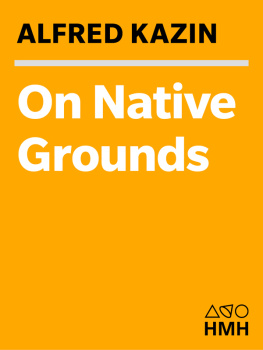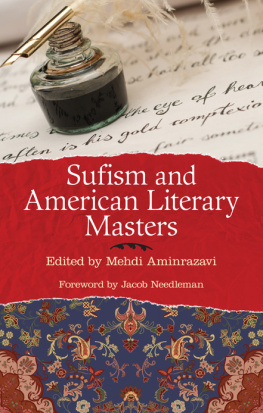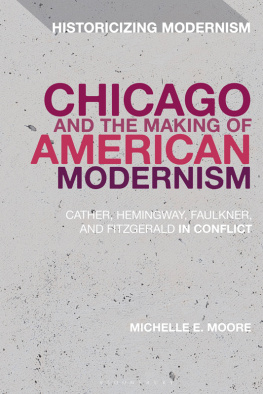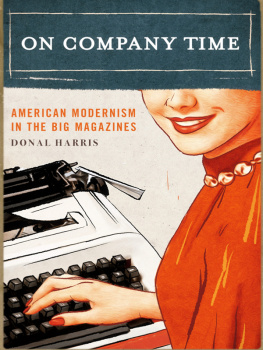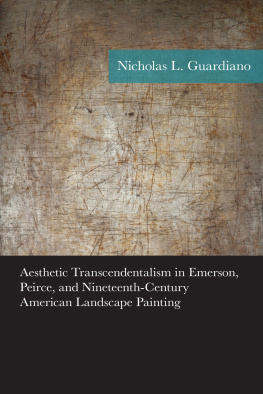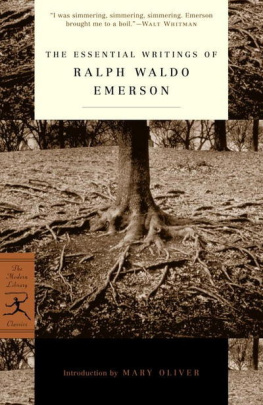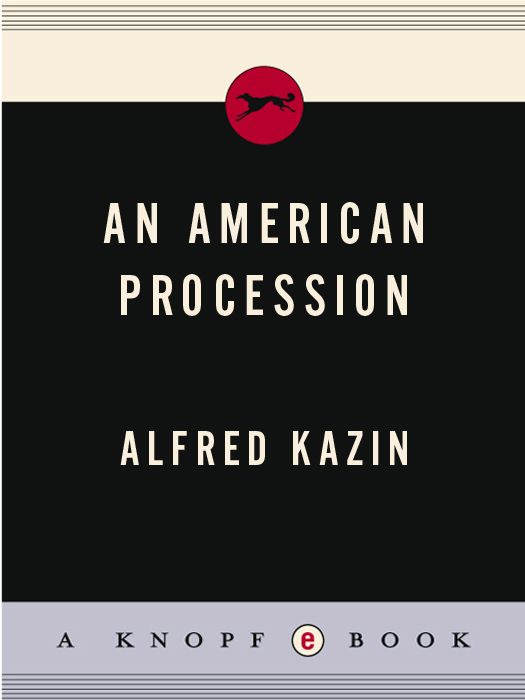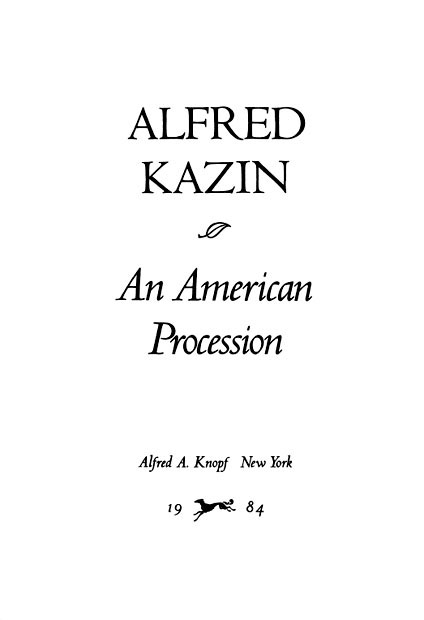F. SCOTT FITZGERALD
The Man and His Work
Acknowledgment for permission to reprint previously published material appears on .
Contents
P ART O NE
T HE S ELF AS P OWER : A MERICA W HEN Y OUNG , 18301865
P ART T WO
M ODERN T IMES , 18651900
P ART T HREE
R ULING BY S TYLE : H ISTORY AND THE M ODERNS , 19001929
Retrospect, 1932:
The Twenties and the Great American Thing
Acknowledgments
An American Procession was first worked out, in part, as the Christian Gauss lectures at Princeton, 1961, and in the lectures I gave as Beckman professor in 1963 at the University of California, Berkeley. Since that time I have been able to develop this book by drawing on my seminars at universities here and abroad, and on reviews, essays, and introductions I have written. In the course of more than twenty years I have been constantly stimulated by rethinking and recasting my early efforts.
The book has been aided considerably by the support of Dr. Gordon Ray and the John Simon Guggenheim Memorial Foundation, and by fellowships, 197778, from the National Endowment for the Humanities and the Center for Advanced Study in the Behavioral Sciences, Stanford University.
My students at Hunter College and the Graduate Center of the City University of New York have helped more than they know by fiercely arguing back.
I owe a special debt to my editor, Robert Gottlieb. He cares about these books as much as I do and, without regard for my feelings, has insistently demonstrated literary acumen beyond the call of duty.
Without my wife Judith, nothing would have happened.
Preface
Ones-Self I sing, a simple separate person,
Yet utter the word Democratic, the word En-Masse.
W HITMAN , Ones-Self I Sing
This book offers an interpretation of some major figures in American writing during the crucial century that began in the 1830s when Ralph Waldo Emerson left the church and founded a national literature on the basis of a religious revolution. I end my book on the eve of the 1930s with the triumph of modernismEliot, Pound, Hemingway, Fitzgeraldand with the revelation after the First World War of the postponed power among those who had been modern before their timeAdams, Melville, Whitman, Dickinson.
The literary century that began with Emersons Nature (1836) closed (but not entirely) when the free spirit of the moderns was dissipated by war, depression, political ideology, academicism, post-modernism. My book encompasses the two greatest periods in our literature. The first was before the Civil War; the second, just after what John Dos Passos unrelentingly called Mr. Wilsons War. The earlier period includes the transcendental idealists (Emerson, Thoreau, Whitman) and the great romancers (Hawthorne, Poe, Melville). The later period includes the modernist poets, novelists, and criticsEliot, Pound, Hemingway, Dos Passos, Fitzgerald, Edmund Wilson, Kenneth Burketoo many for me to do justice to in a book that ends with the 1920s. This literary century also encompasses our great realistic novelists of the period between the Civil War and the Great WarMark Twain, James, Crane, Dreiser. And Emily Dickinson, the greatest realist in our literature of the internal difference,/Where the Meanings, are.
This period of literary creation, unprecedented expansion, and national promise was to Henry Adams, who lived it all from 1838 to 1918, to be the most eventful and decisive period in the recorded history of the West. America from Lincoln to Woodrow Wilson seemed unparalleled in its concentration of material power and the challenge this represented to the intellect. The rise of the United States was a planetary event and one by no means to be welcomed blithely even by those fascinated by the challenge. This concern with power on a scale previously unknown to men is one reason why Adams the great observer plays a large role in my narrative; he was always near the seats of power. Another reason is that Adams, the most original, imaginative, and provoking of American historians, was a bolder and more accomplished literary artist than William Dean Howells and other tame excellences of the period.
Emerson, in leaving the church and other mere institutions, gained an individual sense of power that now seems primordial. He found the universe an open secret. I begin with Emerson because Whitman (thereby giving me my title) predicted correctly that America in the future, in her long train of poets and writers, while knowing more vehement and luxuriant ones, will, I think, acknowledge nothing nearer [than] this man, the actual beginner of the whole procession.
We have certainly known more vehement and luxuriant characters in the procession of American writers since Emersons day. Emerson is still nearer because the astonishing sense of self that he incarnated in his early writings created many a writers confidence that the individual in America is by himself equal to anything. And this at a time when the most penetrating observer of America from a European, aristocratic, Catholic point of view, Alexis de Tocqueville, recognized that democracy was the revolutionary proposition of the time and that democracy in America was founded on a faith in the individual that was unprecedented, wonderful, and dangerous.
Americans acquire the habit of always considering themselves as standing alone, and they are apt to imagine that their whole destiny is in their hands. Thus not only does democracy make every man forget his ancestors, but it hides his descendants, and separates his contemporaries from him; it throws him back upon himself alone, and threatens in the end to confine him entirely within the solitude of his own heart.


